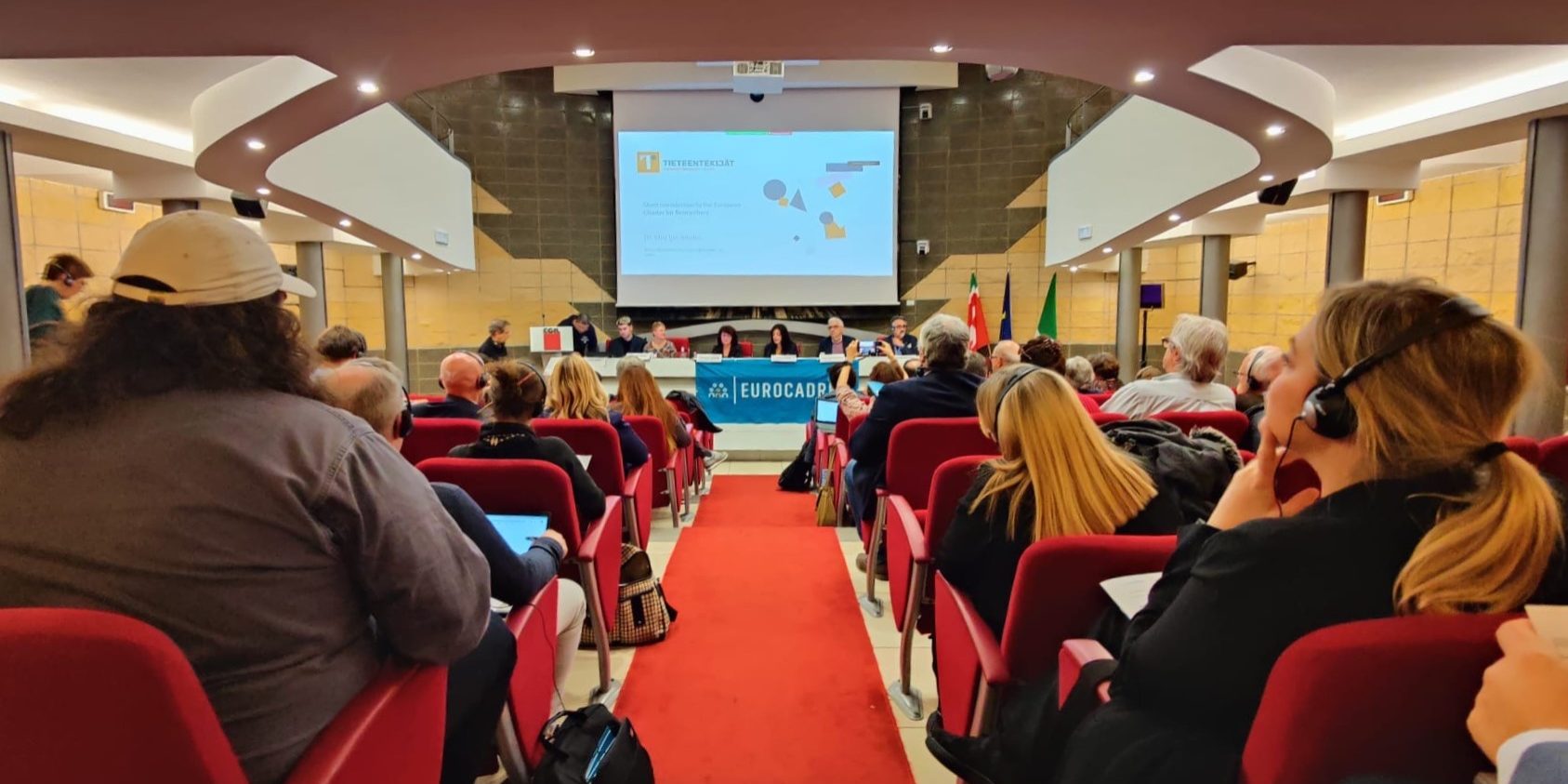
Research-focused project focuses on working conditions
Commission funded project continues in Rome.

After productive sessions in Bucharest, Avilés and Brussels earlier this year, our two-year Commission funded project on Researchers Working Conditions organised its conference last week in Rome, hosted by our colleagues from CGIL.
With two years of work done, the flagship publications (co-funded by the European Union and compiled by the experts at WMP consult) are our “Working Conditions in Research” report, and our practical guide, “Improving Working Conditions in Research”. We would like to thank WMP Consult’s Katharina Schöneberg and Stefan Stracke for their excellent work across these publications.
Across both, the gap between calls for further investment in research and development and the prioritisation of researchers working conditions have been made clear. Investment in these fields cannot expect any level of success without a material improvement in the pay, conditions and career prospects of workers throughout the European Union. Throughout our surveys, panel discussions and presentations, the plight of researchers, and the lack of emphasis on their conditions, was a common theme.
Both led the opening session of our conference, examining the current working conditions in research based on our survey and subsequent reporting. Following this in-depth examination of the challenges facing researchers, our first panel posed the question; How we can make the European Charter for Researchers, and its recommendations, binding. Moderated by Eurocadres President Nayla Glaise, we were joined by FUURT Finland’s Miia Ijäs-Idrobo, CGT’s Sylviane Lejeune, Stefano Bernabei from CGIL and SPZC Portugal’s Jose Luis Abrantes.
Our attention turned to academic freedom, with Parliament action on this issue a consistent theme of the previous mandate. With an excellent presentation from Peter Maassen of the University of Oslo setting the scene, MEP Sandro Routolo, Laila Abdallah from SACO in Sweden, Pecs University in Hungary’s Sara Bigazzi and Rosella Benedetti of UIL and ETUCE debated where we must be active. With a number of Member States seeing a decline in academic freedom over the past twelve months, we can anticipate plenty of future work in re-integrating safeguards throughout Europe.
Day two was kickstarted by a presentation of our already mentioned best practice guide, before a lively debate on trade union priorities and future activities. Contributions from OGBL’s Stéphane Jacquemart, Jutta Turner of the Max-Planck Society, Riccarda Darmanin of GWU Malta, UGT Spain’s Valvanera Eiriz and Mads Flyvholm from DM Denmark were followed by a terrific presentation from ETUC’s Tom Shannon on the fight against the far-right for academic freedom.
After a short coffee break intellectual property rights and artificial intelligence were the topics of discussion, with presentations from Javier de la Cueva and CGIL’s Lia Bruna and Alessio De Luca followed by the Belgian duo of Miroslav Honty and Dominic Maertens of ACV/SCKCEN.
While filled with expert speakers, as ever we could have done with hours more of debating time!
This project is the starting point for continued work in the academic and research field for Eurocadres and our members, with a plethora of actions to be undertaken both at a national and European level.
We would like to thank all who travelled to and participated in all events so far in this project, in particular those who attended last week’s conference.
There is plenty more to do in this field, and we will seek to reconvene these experts in the coming months to deliver equal and just protections, pay and conditions for researchers in Europe.
